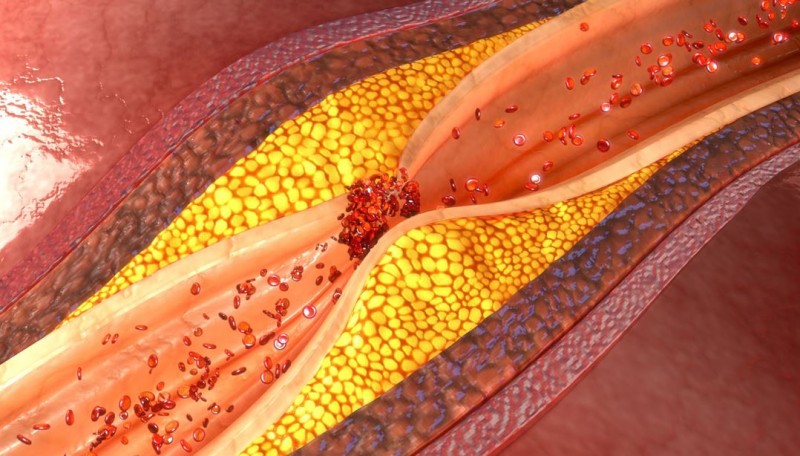
When we hear the term "cholesterol," many of us think about the harmful effects of bad cholesterol on our health, especially regarding heart health. However, alongside bad cholesterol, our bodies also have good cholesterol, known as high-density lipoprotein (HDL), which is crucial for maintaining cardiovascular health. HDL cholesterol helps reduce the risk of heart diseases such as heart attacks and strokes by clearing bad cholesterol from the bloodstream. Boosting HDL cholesterol levels is essential for overall well-being. Here’s how you can do it.
Understanding Good Cholesterol
High-density lipoprotein (HDL) acts like a cleaner in our bloodstream. It helps remove bad cholesterol (low-density lipoprotein or LDL) and plaque buildup from the arteries and blood vessels. By clearing these deposits, HDL cholesterol helps reduce the risk of atherosclerosis, heart diseases, heart attacks, and strokes.
Foods to Boost Good Cholesterol
Incorporating certain foods into your diet can help increase HDL cholesterol levels. Here are some of the best options:
Whole Grains
Whole grains are an excellent source of soluble fiber, which is known to help raise HDL cholesterol levels while lowering bad cholesterol. Foods like oats, whole wheat, barley, and brown rice are beneficial. Soluble fiber binds with cholesterol in the digestive system and helps remove it from the body.
Monounsaturated Fats
Monounsaturated fats are healthy fats that can help increase HDL cholesterol levels. These fats are found in:
Olive oil: A great alternative to butter or margarine.
Peanut oil: Useful for cooking and salad dressings.
Avocados: Delicious in salads, sandwiches, or on toast.
Nuts: Almonds, hazelnuts, and peanuts are good choices.
Seeds: Pumpkin seeds and sesame seeds can be added to various dishes.
Replacing harmful fats, like trans fats and saturated fats, with these healthier options can make a significant difference.
Soluble Fiber
Soluble fiber is effective in increasing good cholesterol. It can be found in:
Oats: Start your day with a bowl of oatmeal.
Fruits: Apples, oranges, and berries are great sources.
Vegetables: Carrots, Brussels sprouts, and broccoli.
Legumes: Beans, lentils, and peas are excellent additions to your diet.
Studies suggest that soluble fiber not only helps reduce bad cholesterol but also boosts good cholesterol levels.
Omega-3 Fatty Acids
Omega-3 fatty acids are essential fats that have numerous health benefits, including raising HDL cholesterol levels. Foods rich in omega-3s include:
Fatty fish: Salmon, mackerel, sardines, and trout.
Nuts and seeds: Walnuts and flaxseeds.
Plant oils: Flaxseed oil, canola oil, and soybean oil.
These fats help improve the cholesterol profile and reduce the risk of cardiovascular diseases.
Calcium
Calcium not only strengthens bones but also plays a role in maintaining cholesterol levels. Several studies have shown that calcium supplements can help increase HDL cholesterol levels. Include calcium-rich foods such as:
Dairy products: Milk, yogurt, and cheese.
Leafy greens: Spinach, kale, and collard greens.
Fortified foods: Certain cereals, juices, and plant-based milks.
Lifestyle Changes to Boost Good Cholesterol
In addition to dietary changes, certain lifestyle modifications can also help increase HDL cholesterol levels:
Exercise Regularly
Physical activity is one of the most effective ways to raise HDL cholesterol. Aim for at least 30 minutes of moderate-intensity exercise, such as brisk walking, cycling, or swimming, most days of the week. High-intensity interval training (HIIT) can also be particularly effective.
Maintain a Healthy Weight
Being overweight or obese can negatively impact your cholesterol levels. Losing excess weight can help increase HDL cholesterol while reducing LDL cholesterol and triglycerides.
Avoid Smoking
Smoking lowers HDL cholesterol. Quitting smoking can improve your HDL level and benefit your overall heart health. Within a few weeks of quitting, your HDL cholesterol levels can start to improve.
Moderate Alcohol Consumption
Some studies suggest that moderate alcohol consumption can increase HDL cholesterol. However, it's important to drink in moderation—up to one drink per day for women and up to two drinks per day for men. Excessive drinking can lead to other health problems.
Boosting HDL cholesterol levels is essential for maintaining heart health and reducing the risk of cardiovascular diseases. By incorporating whole grains, monounsaturated fats, soluble fiber, omega-3 fatty acids, and calcium into your diet, along with making healthy lifestyle changes like regular exercise, maintaining a healthy weight, avoiding smoking, and moderating alcohol consumption, you can effectively increase your good cholesterol levels. Start making these changes today to improve your cholesterol profile and enhance your overall well-being.
World Thyroid Day 2024: Understanding Early Signs and Symptoms of Thyroid Issues
If you eat so many mangoes in 1 day, sugar will not increase, weight will remain under control
How long should you drink water after coming home from the hot sun? Know what health experts say?